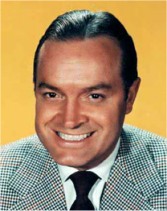June 2003
Beyond Hope
By Michael J. Katin, MD
Hope is a pathological belief in the occcurence of the impossible. H. L. Mencken
But groundless hope, like unconditional love, is the only kind worth having. John Perry Barlow
It is always frustrating that there can be a wide range of responses to cancer treatment, and the many intangibles may include the motivation and attitude of the individual patient. Attempts have been made to quantitate characteristics such as optimism and correlate these to outcome but most of these studies have failed to show a relationship. Perhaps this is due to the lack of a way to truly assess an individual's personality or whether it would be actually more pertinent to study the caregivers, who need to make sure the patient goes through with evaluation and treatment. It's improbable that a person will travel and go through a lot of time and expense seeking investigational treatment, for example, when his or her family is already deciding how to split up the china settings.
Regardless, we have all seen examples of people who are able to hold it together until a specific date or event has occurred, such as an anniversary, a holiday, or the conclusion of American Idol II. It has been observed that more deaths occur on or immediately after a person's birthday than before it (the death-dip phenomenon). Amazingly, this applies to natural deaths and accidents, and is not related to suicides (even in people who are dealing with the realization that they have just turned 40).
Since it may not be possible to accurately stratify people by personality characteristics, the next best thing might be to try to quantitate the amount of extrinsic support sought by the patient. This might be a challenge as well. There could be an attempt to correlate CR, PR, and ORR with specific religions, but positive findings could produce severe cultural repercussions (p <0.001 for Lutheran Church-Missouri Synod compared to Wisconsin Evangelical Lutheran Synod). Patient advocacy groups are numerous and can be the source of shared experiences and information to help patients better cope with effects of diseases and treatments. There are literally hundreds of these groups, but participation of a patient in a large number of different groups might actually reflect confusion and discouragement.
Determination might also be made of the number of hours on the internet seeking information to fight the disease. Unfortunately, the novice internet surfer might be discouraged after looking up www.help.com and finding only information on how to "Snap Out of Your Windows XP Nightmare." Once that person has mastered the ability to follow through links ad infinitum, he or she may no longer have time to leave the house to keep medical appointments or even buy food, and this could have a negative impact on survival. This could be remedied by seeking help on one last site.
Ultimately any type of concrete assessment of hopefulness or helplessness will probably be impossible and any of these attempts may only serve to put the onus on the patient for not "trying." If our therapeutic efforts were adequately effective, it wouldn't make a difference. We can all hope that will eventually be the case.
Note: This is the first time a reference has been made, even though not explicit, to a person's birth centennial--certainly the most prominent person to have this happen in a long time. The question was asked as to why the 100th birthday of George Burns wasn't similarly honored. Two reasons: 1. this column started one year after that event, and 2. in radiation oncology we would much rather be associated with Hope than Burns.
email: mkatin@radiotherapy.com
